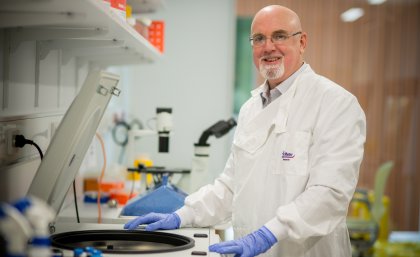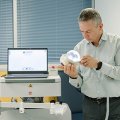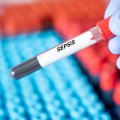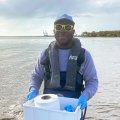
Brisbane researchers have developed an antibody drug that attacks cancerous ovarian cells and limits the serious side-effects of traditional treatments.
The research, led by the Mater Research Institute-University of Queensland’s (MRI-UQ) Associate Professor John Hooper, has shown that cancerous ovarian cells produce a specific protein that could be targeted by the new drug.
Associate Professor Hooper said the MRI-UQ’s Mater Ovarian Cancer Research Collaborative team had found the antibody had been very effective at killing ovarian cancer cells in preclinical models of ovarian cancer.
“One of the really interesting things is that while normal ovaries don’t produce this protein, the tumours of about 90 per cent of patients do,” he said.
“This means we can attack the cancerous cells while having little impact on the normal ovarian cells, and that reduces the side-effects, which is obviously of great interest to patients.
“Another thing we found with this protein is that it sits on the surface of the cancerous cells so it’s much easier for the drug to target it.”
Associate Professor Hooper said it would be several years before human trials could be conducted and even longer before the drug would be available commercially.
He said that while the study was still in its early stages, the research team was in a “great position to better understand how to attack ovarian cancer”.
The next phase of the project, funded by the Cancer Council Queensland (CCQ), will use patient samples to study how effective the antibody can be against ovarian cancer.
CCQ spokesperson Ms Katie Clift said it was important for all women to get to know the symptoms of ovarian cancer.
“There is no effective screening test for ovarian cancer,” Ms Clift said.
“In Queensland each year, about 250 women are diagnosed with ovarian cancer and about 150 women die from the disease.”
Ms Clift said symptoms included increased abdominal size or bloating, weight gain or loss, back pain, indigestion, nausea or excessive fatigue.
MRI-UQ is an alliance between Mater Research and The University of Queensland, two leading institutions working together to achieve the best possible research discoveries in health and medicine.
Media: UQ Faculty of Medicine and Biomedical Sciences Media Manager Bernadette Condren, +61 7 3346 5309, b.condren@uq.edu.au; Cancer Council Queensland Executive Manager, Media, Katie Clift , +61 7 3634 5372, 0409 001 171, KatieClift@cancerqld.org.au.










